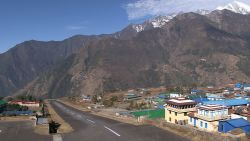The steamy, jungle-covered tropical island of Borneo was once considered one of the remotest, wildest places on earth. A place where orangutans and headhunters lurked undisturbed.
Together with neighboring Sumatra, it’s one of just two places in the world where the orangutan lives in the wild.
For decades, forestry and agriculture have whittled away orangutans’ forest home, placing them in great peril, according to the WWF.
As deforestation accelerates and more species are lost and threatened, now more trouble lurks.
Almost three years after announcing it, the Indonesian government is moving ahead with its plans to relocate the nation’s capital to the dense but dwindling jungles of East Kalimantan province.
That is, 730 miles (about 1,175 kilometers) away from sinking, overcrowded Jakarta to a new “forest capital,” as President Joko Widodo calls it, in Borneo’s hilly hinterland.
With the move now enshrined in law, work on Nusantara may begin this year, while relocation will start in 2024.
About an hour’s drive north of seaport Balikpapan, the location picked for the new capital straddles the North Penajam Paser and Kutai Kartanegara Regencies – or administrative districts.
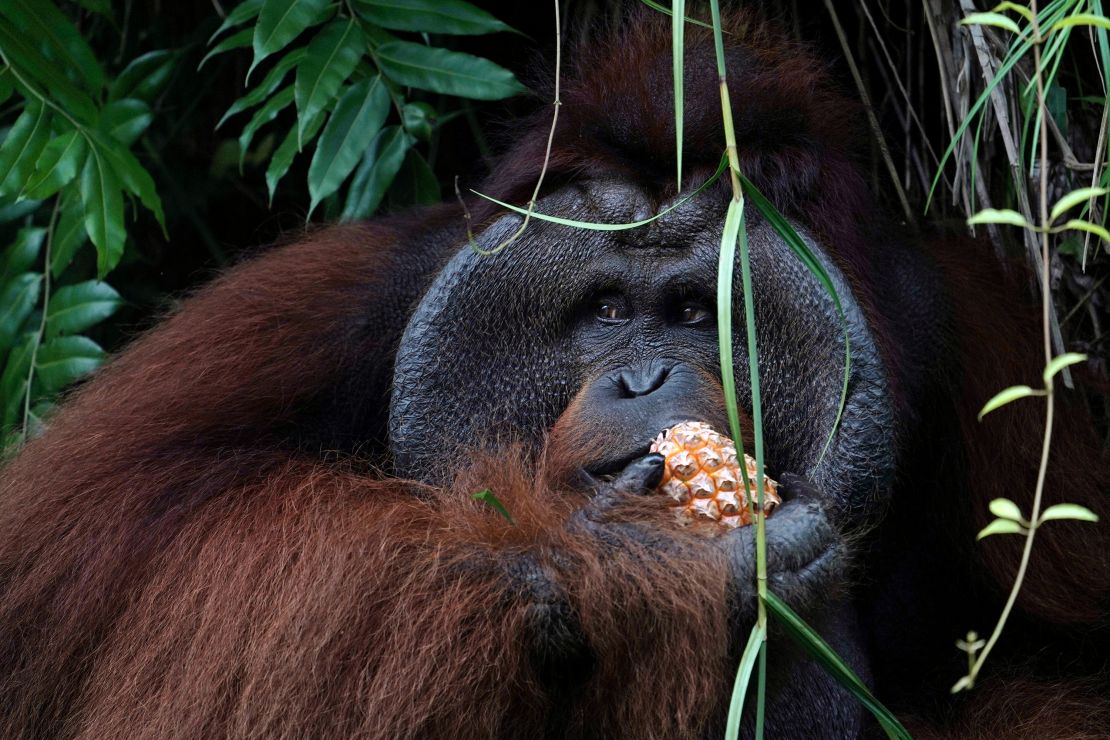
Orangutans’ habitat continues to shrink
The government envisages the “smart city in the forest” as an innovation hub.
But alongside the excitement, there’s also deep concern for the shrinking lowland tropical rainforest and its wildlife. The UN says humans are driving the orangutan to extinction.
Without a “transformative change” in human behavior, the critically endangered animal could be extinct within a few decades, it warns.
This has led to fears that while securing a future for the sinking megalopolis, Indonesian officials are sinking the future of one of the planet’s most remarkable creatures.
“The move will bring a large population but also big demands for changes to land-use to accommodate new housing and office complexes, even food production centers,” says Anton Nurcahyo, deputy CEO of the Indonesian non-profit Borneo Orangutan Survival Foundation (BOS).
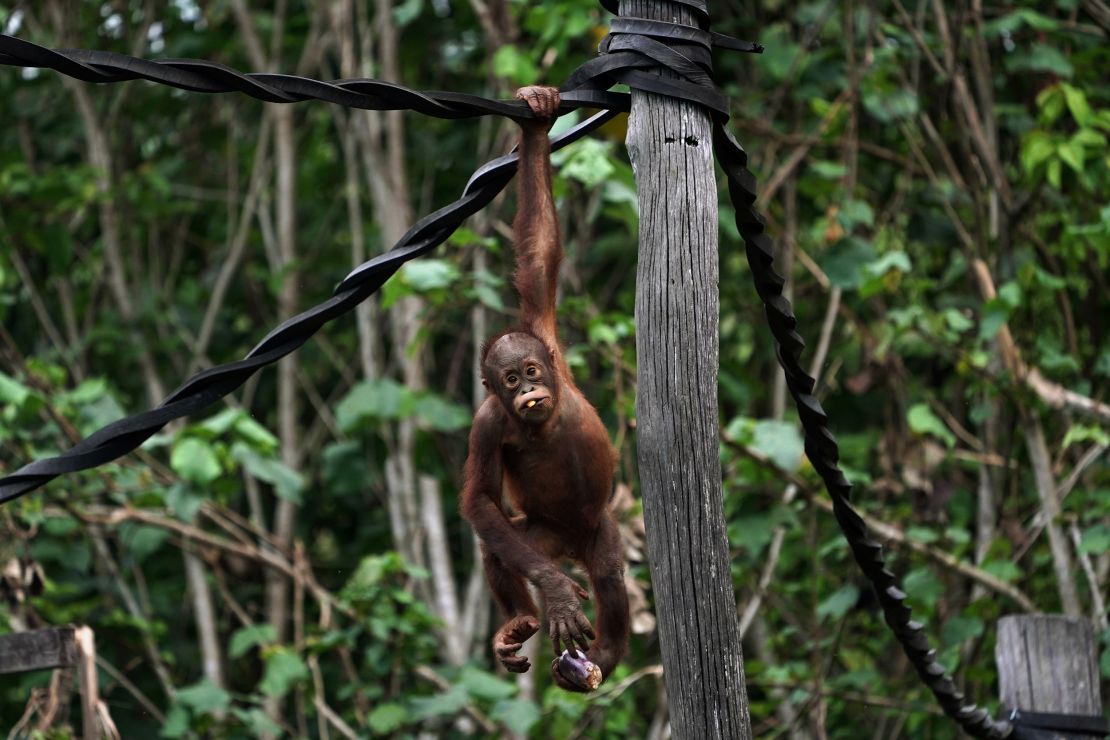
“This inevitably will create huge changes to the surrounding habitats.”
The foundation’s orangutan rehabilitation work began in East Kalimantan in 1991.
Since 2006, its orangutan sanctuary, Samboja Lestari, has been caring for injured and orphaned orangutans, rescued from jungle destroyed by logging and palm oil crops.
It lies precisely in the area of the new capital.
Today, staff here take care of over 120 rescued orangutans in a conservation area of regenerating forest. The idea is to release them back into “areas of safe, secure natural habitat” if they regain their health. But what if the fruit-rich forests suffer further losses?
“The neighboring Sepaku and Samboja districts (earmarked for Nusantara) do not have wild orangutan populations,” Nurcahyo says.
“But the orangutan rehabilitation center is located here, on 1,850 hectares of forest, which needs to be preserved in its current condition.”
NGOs and locals worry that a new city of some 1.5 million residents may be disastrous for the environment.
The influx, mostly of civil servants and their families from Jakarta, could force the dispossession of people and animals.
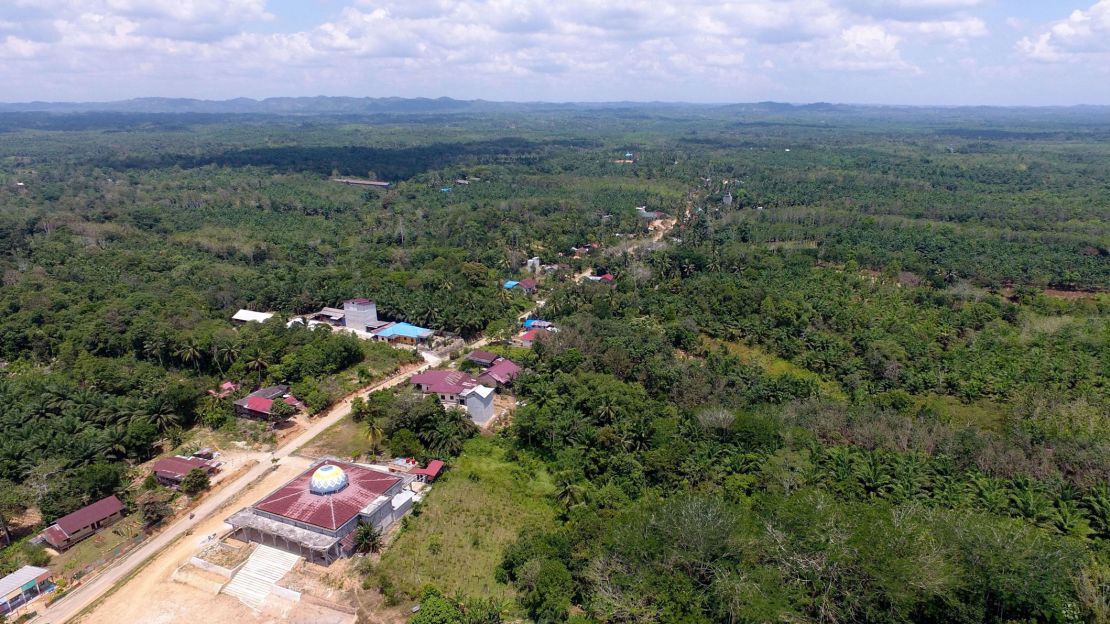
The extent of the threat to rare wildlife will depend on the ongoing planning and surveys, says BOS.
“With the unique ecosystems in East Kalimantan, it is vital to have a mitigation plan in place tailored to these specific environmental needs,” Nurcahyo insists.
“That plan is still being developed. The first step will be to evaluate and map the impact of the move.”
Local government promises environment will be protected
Kalimantan has already seen vast habitat loss and the killing of 2,000-3,000 orangutans a year since the 1970s, according to the International Union for Conservation of Nature (IUCN). The orangutan is on its red list of critically endangered species.
In a century, total populations have almost halved, says the WWF – from 230,000 to about 112,000.
Nurcahyo says about 57,350 orangutans survive in Borneo, “spread into 42 pockets of wild population.”
The big worry is that most orangutans in Kalimantan exist outside of protected areas. Or, as the WWF puts it, “in forests that are exploited for timber production or are in the process of being converted to agriculture.”

Officials have moved to allay fears about the impact of the new capital on the environment.
The Indonesian government has pledged no protected forests will be touched in the $32 billion megaproject.
It will be “a smart city, with green technology and friendly to the environment,” promised the president while discussing the move with journalists.
East Kalimantan Governor Isran Noor told media he admits some trees will fall to make way for the 256,000-hectare (2,560 square kilometers) site, which is almost four times the size of Jakarta.
“Of course, there will be a few sacrifices, but ultimately, we aim to achieve forest revitalization,” he told local papers. “When finished it will boast at least 70% open green space.”
Poor infrastructure along with continuing logging activity even in nature reserves has so far kept mainstream orangutan tourism at bay here.
Now the government is eager for the new capital to lure foreign tourists and investments. But it’s also aware of the importance of ecotourism, and that most visitors will come to see the wildlife.
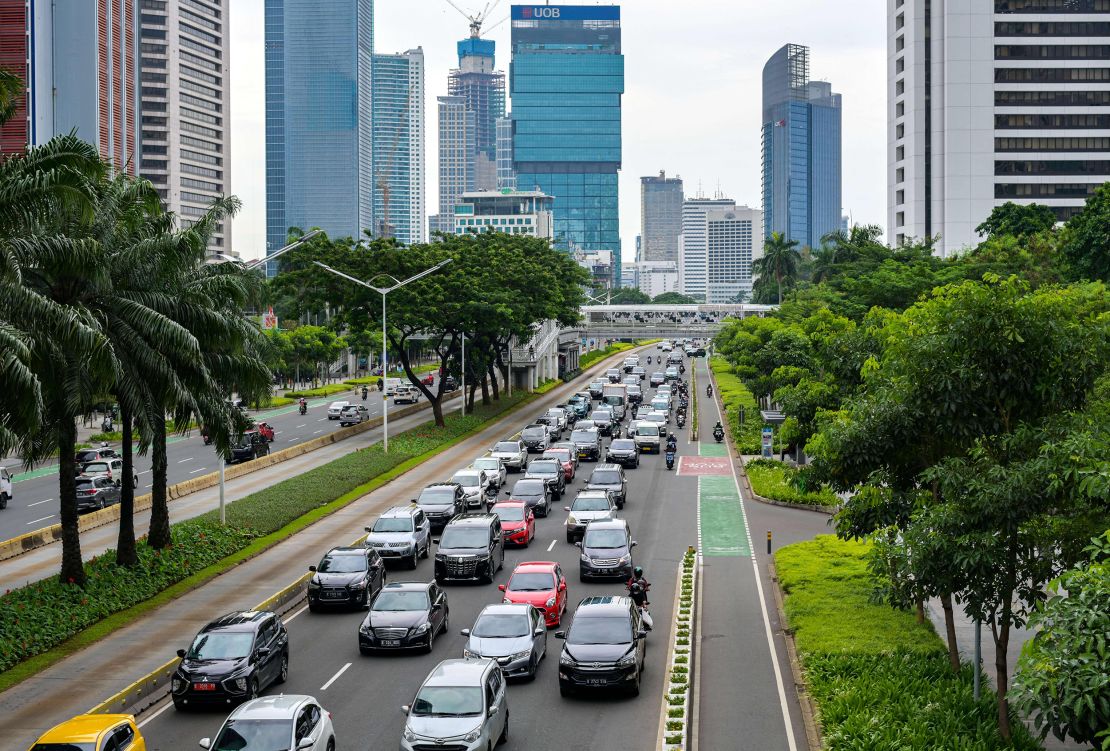
Forest reserves surrounding Nusantara will play a pivotal role in ensuring conservation efforts and sustainability, Governor Noor told media.
So too will the orangutan sanctuaries.
“Nature and urbanization will coexist here,” Aswin, chief of East Kalimantan’s Regional Development Planning Agency, Bappeda Kaltim, told local media.
He noted strategic environmental studies are underway to ensure the forests are taken care of.
“The important thing is that our area can become an economic, tourist and other destination.”
But he’s also boasted of the huge profits to come. Investment in East Kalimantan is set to soar by 34.5% compared to a national rise of 4.7%, he said. And economic growth will double with the relocation.
Even the buffer zone around Nusantara – from Samrinda to Balikpapan – must benefit from the move, he said.
“We need East Kalimantan to be bright and sparkling.”

Amid concerns that all that will come at a cost, the regional arm of the National Development Planning Agency, Bappenas, is reportedly busy consulting local communities about ecological conservation of the jungle tract.
Kalimantan’s Heart of Borneo forests must be preserved as Nusantara takes shape, said acting chief Muhammad Raudo. (Something local officials feel could take decades, not years.) The handling of protected forests and prevention of floods and forest fires are a concern, he told local community representatives.
Glimmers of hope
Beyond the rhetoric of Borneo’s jungles being the “Paru-Paru Dunia” – “lungs of the earth” – forest burning continues. Many fires are deliberately lit to clear land for agriculture.
These have even flared up near the upcoming capital, leaving apes in wildlife rehabilitation shelters blind or severely disabled.
Some worry that logging, land-clearing and fires will only worsen as construction takes off.
“These ecosystems are already hit by large-scale coal mining, logging and monoculture oil palm plantations,” said Sophie Chao at the University of Sydney, an expert in ecology and indigeneity in Southeast Asia.
She believes the move spells more strife for indigenous populations and thousands of species of flora and fauna.
“The region of East Kalimantan is immensely rich in biodiversity, with over 133 mammals, 11 primates species and 3,000 types of trees. These are found across a diverse mosaic of karst landscapes, peat marsh, mangrove, flatland dipterocarp forest and humid forest.”
Set against that specter, there are glimmers of hope.
Nurcahyo does not rule out the chance that shifting Indonesia’s capital to Borneo could bring more attention to the orangutan’s plight and bolster conservation efforts.
“All that depends on the mitigation plan and potential ecological ramifications of the move. We, meantime, will dedicate ourselves tirelessly to the conservation of the Bornean orangutans and their habitat.”




